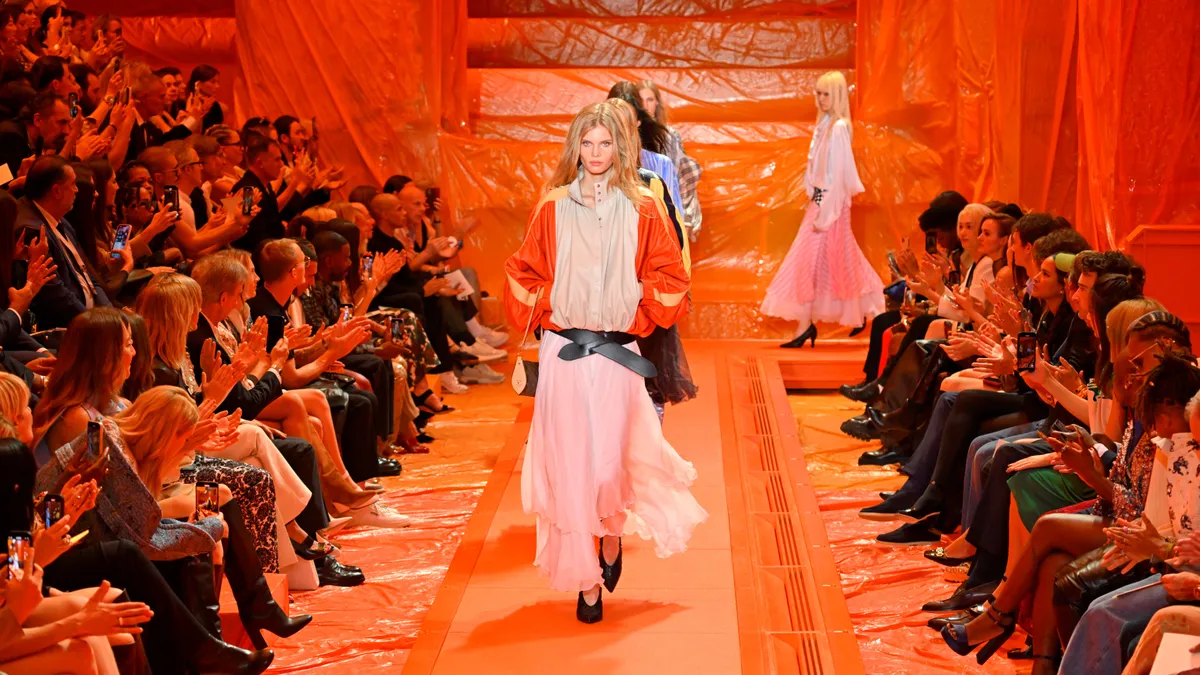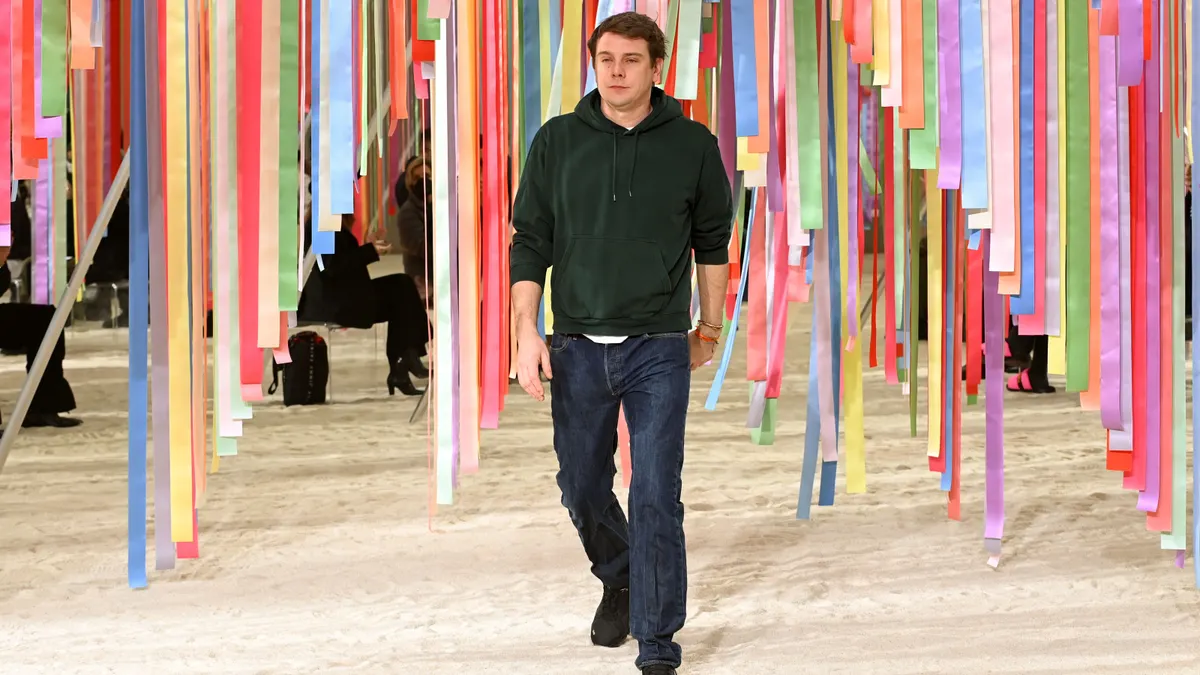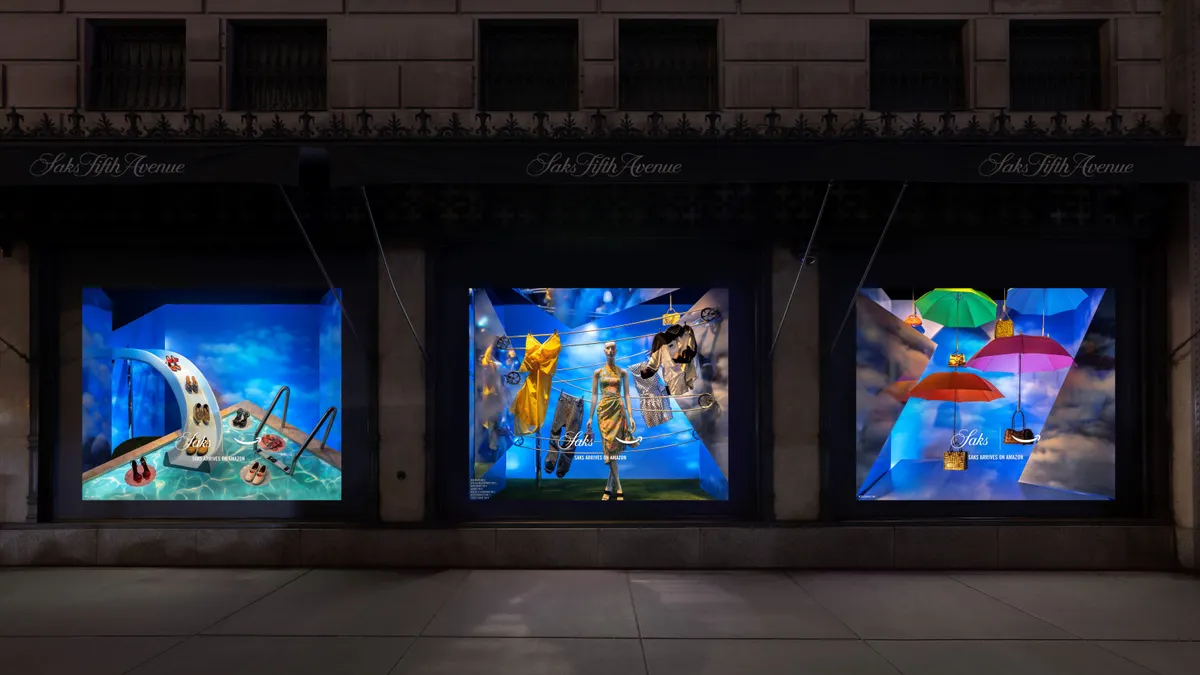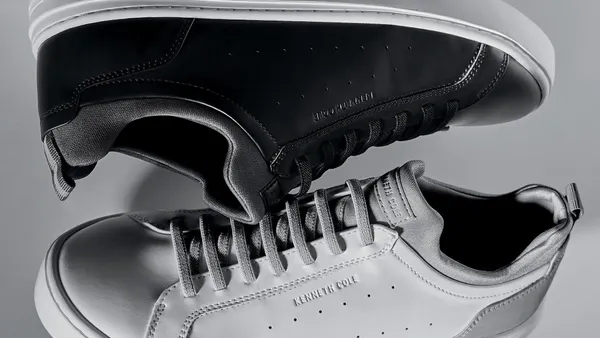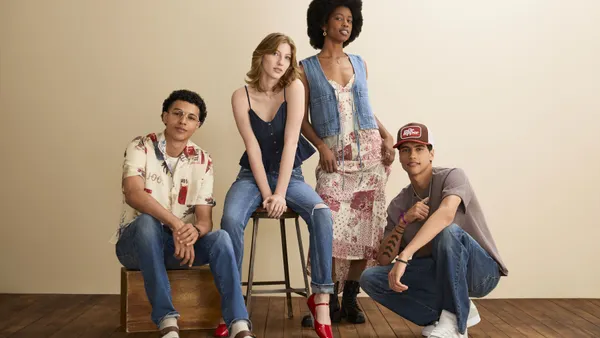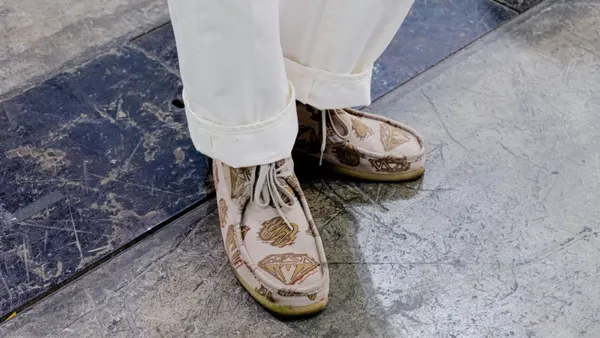Dive Brief:
- LVMH Moët Hennessy Louis Vuitton reported first quarter revenue of 20.7 billion euros, or approximately $22 billion at current exchange rates, representing a 2% drop year over year, per a Tuesday earnings release.
- By category, the fashion and leather goods division was 10.5 billion euros, down 2% year over year, while perfumes and cosmetics rose 3% to 2.2 billion euros. Watches and jewelry dropped 5% to 2.5 billion euros. The largest decline came in the wines and spirits division, which dropped 16% to 1.4 billion euros.
- Organic revenue grew 2% in both the U.S. and Europe, but dropped 6% in Asia (excluding Japan). Meanwhile, Japan saw an organic revenue growth of 32%. The report stated that “growth in spending by Chinese customers in Europe and Japan” was responsible for revenue upticks in those regions.
Dive Insight:
After reporting a record fiscal 2023 profit of 86.2 billion euros in January, LVMH appears to be hitting a slowdown similar to competitor luxury fashion firm Kering, which will report its first quarter earnings next week and has projected a significant downturn.
The biggest drag on revenue came from wines and spirits. According to the earnings report, “Champagne was down, reflecting the normalization of post-Covid demand,” and “Hennessy cognac was once again hampered by a cautious attitude among retailers, which limited their orders in an environment that remained uncertain in the United States.”
Adding to that division’s decline were flat numbers in markets in America, Europe and Japan, where fashion and leather goods shoppers spent roughly the same in Q1 as they did in the second half of fiscal 2023, Jean-Jacques Guiony, chief financial officer, said on a call with analysts.
“Basically, the trends we’ve seen since Q3 last year, so slightly negative overall, are exactly the same in Q1 of this year,” Guiony said.
He added that positive Q4 numbers in the fashion and leather goods division were mainly attributable to China, where revenue was assisted by “very easy comparison base in Q4 2022” because of previous lockdowns in the region.
Japan also “remains one of the fastest growing…destinations for Chinese tourists,” Rodolphe Ozun, LVMH’s director of financial communications, said on the call, adding that it led to a “negative impact on non-Japan Asia” revenues.
The company’s fashion brands, which include Louis Vuitton, Christian Dior Couture, Celine and Loewe, may also benefit later in the year from increased marketing exposure.
For the Paris 2024 Olympic and Paralympic Games, Louis Vuitton designed trunks to house the medals and torches, and the Apple TV show ‘The New Look’ brought additional attention to Dior. Meanwhile, Loewe recently launched a collaboration with Neiman Marcus and a tongue-in-cheek video marketing spot to promote the correct pronunciation of the brand’s name.
Guiony addressed LVMH’s repeated price hikes across several brands, saying that “obviously prices have increased” and adding that “the aspirational customer has to adjust to the new normal” and saying “most of our competitors have been doing the same.”
“I’m not particularly worried as to the acceptancy of the new level of price from aspirational customers,” Guiony said. “It’s just that it is going to take time, as we can see on the market. So no worry, but be patient.”
Meanwhile, LVMH has seen shifts on its board of directors. In March, longtime executive Antonio “Toni” Belloni announced his departure, and prior to that, Bernard Arnault, chairman and CEO of the LVMH Group, nominated two of his children—Alexandre Arnault and Frédéric Arnault—to fill two vacant seats on the board, joining their siblings Delphine Arnault and Antoine Arnault.



